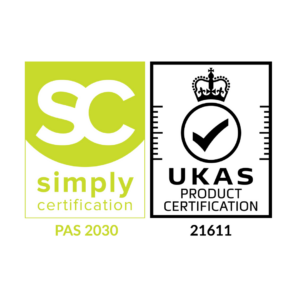Energy efficiency plays a crucial role in the sustainable development of nations, and the United Kingdom has been at the forefront of implementing measures to enhance energy efficiency across various sectors.
We’ll explore the different energy efficiency measures in the UK, examining government policies and initiatives, as well as their impact on the residential, commercial, and industrial sectors.
Additionally, we’ll delve into the role of renewable energy in supporting energy efficiency, the challenges and barriers faced in implementation, and presents case studies and success stories.
Finally, a glimpse into the future outlook and potential for further energy efficiency improvements is provided, highlighting emerging technologies and policy developments with NXTGEN Futures.
NXTGEN Futures have an experienced, and dedicated team that specialise in retrofit and energy efficiency measures under the PAS2030 regulations to ensure that all jobs meet the necessary standards.
As per the regulations NXTGEN Futures takes a fabric first approach and as such pride ourselves on our insulating works. We have in-house staff trained at level 2, 3 and 5 so far so we have a deeper understanding of retrofit and energy efficient measures.
Our Accreditations







1. Introduction to Energy Efficiency Measures in the UK
Understanding Energy Efficiency
Energy efficiency is all about using less energy to achieve the same or even greater results. It involves adopting efficient technologies, making behavioral changes, and implementing smart energy management systems to reduce energy consumption in various sectors.
Importance of Energy Efficiency in the UK
Energy efficiency is crucial for the UK due to its environmental and economic benefits. By reducing energy consumption, the country can lower greenhouse gas emissions, combat climate change, and enhance energy security. Moreover, energy efficiency can help households and businesses save money on their energy bills, making it a win-win situation for both the environment and consumers.
Overview of Energy Consumption and Carbon Emissions in the UK
The UK has made significant progress in reducing its energy consumption and carbon emissions over the years. According to the Department for Business, Energy & Industrial Strategy (BEIS), total energy consumption in the UK has decreased by around 14% between 2000 and 2019. Similarly, carbon emissions have fallen by approximately 47% during the same period, mainly due to the shift towards renewable energy sources and energy efficiency measures.
2. Government Policies and Initiatives Promoting Energy Efficiency
National and International Targets for Energy Efficiency
The UK government has set ambitious targets to improve energy efficiency. One of the notable goals is to achieve net-zero greenhouse gas emissions by 2050. Additionally, the UK is committed to meeting the European Union’s target of achieving a 32.5% improvement in energy efficiency by 2030.
Energy Efficiency Obligations and Regulations
To drive energy efficiency improvements, the UK government has introduced various obligations and regulations. One example is the Energy Company Obligation (ECO), which requires energy suppliers to install energy-saving measures in eligible households. Other regulations include building standards that promote energy-efficient construction and appliance labeling schemes that inform consumers about the energy efficiency of products.
Financial Incentives and Support Programs
To encourage energy efficiency adoption, the government offers financial incentives and support programs. These include grants, loans, tax incentives, and subsidies for energy-saving measures. Additionally, initiatives like the Green Homes Grant scheme offer vouchers to homeowners for implementing energy efficiency improvements in their properties.
3. Energy Efficiency in the Residential Sector
Building Regulations for Energy Efficiency
The UK has stringent building regulations that aim to improve the energy performance of residential properties. These regulations set standards for insulation, heating systems, ventilation, and lighting. Compliance with these regulations ensures that new homes are energy-efficient and environmentally friendly.
Home Energy Efficiency Improvements
Homeowners can undertake various energy efficiency improvements to reduce their energy consumption and carbon footprint. These include installing insulation, upgrading heating systems, using energy-efficient appliances, and adopting renewable energy technologies like solar panels or heat pumps. These measures not only save energy but also enhance comfort and reduce utility bills.
Smart Homes and Energy Management Systems
Smart home technologies and energy management systems allow homeowners to monitor and control their energy usage. These systems enable optimizing energy consumption, adjusting thermostats remotely, and even integrating renewable energy sources. By utilizing smart technologies, households can improve energy efficiency and reduce wastage.
4. Energy Efficiency in the Commercial and Industrial Sectors
Energy Management Strategies for Businesses
Businesses can implement various energy management strategies to improve their efficiency. These include conducting energy audits, setting energy-saving targets, adopting energy-efficient technologies, and engaging employees in energy conservation practices. By managing their energy usage effectively, businesses can reduce costs and contribute to a greener future.
Energy-efficient Technologies and Practices
The commercial and industrial sectors have access to a range of energy-efficient technologies and practices. These include advanced lighting systems, energy management software, HVAC (Heating, Ventilation, and Air Conditioning) upgrades, and energy-efficient motors and machinery. By embracing these technologies, businesses can significantly reduce their energy consumption and operating costs.
Energy Audits and Efficiency Assessments
Energy audits and efficiency assessments can help businesses identify areas of high energy consumption and find opportunities for improvement. These assessments analyze factors such as building insulation, equipment efficiency, and operational procedures. By implementing the recommendations from these audits, businesses can optimize their energy use and maximize efficiency.
5. The Role of Renewable Energy in Enhancing Energy Efficiency
Integration of Renewable Energy Sources
Renewable energy sources, such as solar, wind, and hydro power, play a vital role in enhancing energy efficiency in the UK. By integrating these sources into the energy mix, we can reduce our reliance on fossil fuels and lower greenhouse gas emissions. The intermittent nature of renewables may pose challenges, but with advanced grid management systems, we can maximize their benefits.
Renewable Energy Technologies Supporting Energy Efficiency
Renewable energy technologies, such as solar panels and wind turbines, not only generate clean electricity but also support energy efficiency measures. Solar panels can be installed on rooftops, converting sunlight into electricity and reducing reliance on the grid. Similarly, wind turbines harness wind energy to produce power, contributing to a more sustainable and efficient energy system.
Benefits and Challenges of Renewables in Energy Efficiency
The integration of renewables offers several benefits in enhancing energy efficiency. It helps reduce carbon emissions, creates jobs in the renewable energy sector, and improves energy security by diversifying the energy mix. However, challenges like high initial costs and intermittency require innovative solutions and supportive policies to fully leverage the potential of renewables in enhancing energy efficiency.
6. Challenges and Barriers to Energy Efficiency Implementation
Financial Constraints and Funding Issues
One of the major challenges to implementing energy efficiency measures is the financial burden it can impose. Investing in energy-efficient technologies and retrofits may require significant upfront costs, which can deter individuals and businesses from taking action. Addressing this challenge requires innovative financing models and government support through incentives and grants.
Lack of Awareness and Information
Many people are unaware of the benefits and opportunities associated with energy efficiency. Lack of information and awareness about available technologies, incentives, and savings potential hinder the adoption of energy-efficient measures. Educating and raising awareness among individuals, businesses, and communities is crucial to overcome this barrier and promote energy efficiency.
Technological and Infrastructure Challenges
Implementing energy efficiency measures often requires upgrading existing infrastructure and integrating advanced technologies. This can pose challenges in terms of compatibility, availability of skilled labor, and access to necessary equipment. Overcoming these challenges requires collaboration between government, industry, and research institutions to develop innovative and cost-effective solutions.
7. Case Studies and Success Stories in Energy Efficiency Measures
Energy-efficient Buildings and Retrofit Projects
Numerous buildings and retrofit projects in the UK have successfully implemented energy efficiency measures. For instance, the retrofitting of insulation, installation of energy-efficient lighting systems, and the use of smart energy management systems have significantly reduced energy consumption and costs in buildings.
Energy Management Programs in Industries
Industries have adopted energy management programs to improve efficiency and reduce energy waste. By implementing measures such as optimizing processes, upgrading equipment, and adopting renewable energy, industries have achieved considerable energy savings while maintaining productivity and competitiveness.
Community Engagement and Energy Efficiency Initiatives
Community engagement plays a vital role in energy efficiency initiatives. Several communities in the UK have launched campaigns to promote energy-saving practices, such as behavior change programs, community-led solar projects, and collective energy purchasing schemes. These initiatives have empowered communities to take action and achieve significant energy savings.
8. Future Outlook and Potential for Further Energy Efficiency Improvements
Emerging Technologies and Innovations
The future of energy efficiency in the UK looks promising with the emergence of innovative technologies. Advancements in smart grids, energy storage, and Internet of Things (IoT) devices offer exciting opportunities to optimize energy consumption and reduce waste. These technologies enable real-time monitoring, demand response, and intelligent energy management, contributing to further energy efficiency improvements.
Policy and Regulatory Developments
The UK government has set ambitious targets to improve energy efficiency and reduce greenhouse gas emissions. Policies and regulations, such as building energy performance standards, grant schemes, and carbon pricing mechanisms, incentivize businesses and individuals to invest in energy efficiency. Continued policy development and enforcement will be key in driving further improvements.
Collaboration and Partnerships for Energy Efficiency
Collaboration between various stakeholders, including government, industry, academia, and communities, is essential in achieving long-term energy efficiency goals. Partnerships can foster knowledge exchange, innovation, and the implementation of best practices. By working together, we can leverage expertise, resources, and collective efforts to achieve a more sustainable and energy-efficient future for the UK.In conclusion, energy efficiency measures in the UK have become increasingly important as the nation strives to reduce carbon emissions and enhance sustainability. Through government policies, financial incentives, and technological advancements, significant progress has been made in promoting energy efficiency in both residential and commercial sectors. The integration of renewable energy sources has further bolstered these efforts. Nonetheless, challenges remain, and continued collaboration and innovation will be crucial in driving further energy efficiency improvements. By embracing these measures, the UK can pave the way for a greener and more sustainable future.
Energy Efficiency Measures FAQ
1. What is energy efficiency and why is it important?
Energy efficiency refers to the ability to use less energy to accomplish the same tasks or achieve the same level of comfort and productivity. It is important because it helps reduce energy consumption, lower greenhouse gas emissions, and decrease reliance on non-renewable energy sources. Energy efficiency also contributes to cost savings, improved energy security, and a more sustainable future.
2. How is the UK government promoting energy efficiency?
The UK government has implemented various policies and initiatives to promote energy efficiency. These include energy efficiency obligations and regulations, financial incentives such as grants and loans, and awareness campaigns. The government has set national and international targets to drive energy efficiency improvements and has introduced building regulations to enhance energy performance in new constructions and renovations.
3. What are some examples of energy efficiency measures in the residential sector?
In the residential sector, energy efficiency measures include improving insulation, upgrading heating and cooling systems, installing energy-efficient appliances, and adopting smart home technologies. Homeowners can also conduct energy audits to identify areas for improvement and make energy-saving behavioral changes such as reducing standby power and optimizing lighting usage.
4. How can renewable energy contribute to energy efficiency?
Renewable energy sources, such as solar and wind power, can enhance energy efficiency by providing clean and sustainable energy. By integrating renewable energy technologies into buildings and industries, the reliance on fossil fuels can be reduced, leading to lower energy consumption and carbon emissions. Furthermore, coupling renewable energy with energy storage solutions can optimize energy use and improve overall system efficiency.
